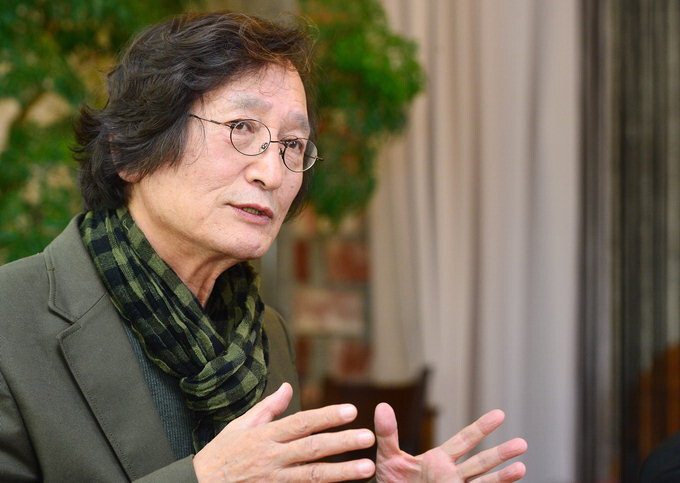
Chung Ji-young, the renowned director who established himself as a leading figure in Korean social cinema with films like "North Korean Partisan in South Korea" and "White Badge" in the 1990s, visited Seogwipo ahead of the production of his new film "My Name Is," which deals with the 4·3 incident. Known for his critical gaze on social issues and power corruption in films such as "Unbowed," "National Security," and "Black Money," he plans to present a new 4·3 narrative that focuses on overcoming trauma and healing wounds, moving away from ideological approaches.
4·3 Chosen After Deep Contemplation
Director Chung revealed that he did not initially plan to make a 4·3 film. Rather, he had intentionally distanced himself from the subject for some time. "Because it's a topic that many people are interested in, I felt like I was competing if I joined in, so I deliberately avoided it," he said. However, the script for "My Name Is," which he came across by chance, changed his mind. "Someone handed me the script to read, and I was impressed by its different approach from existing 4·3 stories. It was a story about past trauma and personal wounds, not ideology," he explained, describing his motivation for deciding to produce the film. He added, "Since I already dealt with ideological issues in 'North Korean Partisan in South Korea,' I wanted to approach this from a different perspective."
Capturing Seogwipo's Time on Screen
The film is set in Jeju in 1998. After completing a location scouting, Director Chung assessed, "Seogwipo still retains the old-fashioned atmosphere amidst the wave of modernization, making it the perfect place to depict the temporal background of 1998." To capture the symbolic meaning of 4·3, filming will begin on April 3rd and aim for a release on April 3rd of next year.
A New Challenge Created with Citizens
The most distinctive feature of "My Name Is" is its pursuit of active citizen participation from the production stage. Director Chung emphasized, "If each household in Jeju Province contributes 10,000 won, we can secure 2.7 billion won in production costs. "More small-scale participation from many people better aligns with the spirit of this film than large investments from a few." His sincerity in creating a film with citizens was evident in his statement, "Ten people contributing 10,000 won each is more meaningful than one person contributing 100,000 won." He also plans to actively promote citizen participation in the cast. The plan is to cast 100 Jeju residents as actors, which will be done in cooperation with local theater groups. Director Chung explained, "We entrusted the casting rights to theater groups actively working in Jeju. We will first select those who can handle the dialogue and then make the final casting decision."
Thorough Preparation for the Work
For the scriptwriting, Director Chung immersed himself in extensive research. He tried to get to the essence of the incident by studying 4·3-related materials and videos. "I researched not just to get story materials or ideas, but to physically experience the pain and feelings of that era," he said. Director Chung replied that he is considering how to approach the film, saying, "Rather than reconstructing a specific incident, I want to capture the overall picture of 4·3."
Social Message in the Film
Director Chung explained, "It is the creator's duty to incorporate sociality even when making a melodrama. The fact that the form of love changes from era to era is ultimately because society has changed." He emphasized the social responsibility of art, saying, "Whether it's a fantasy or an action movie, the director's social perspective will inevitably permeate the work." Director Chung emphasized, "This film will be a work for the people of Jeju, by the people of Jeju. The active interest and participation of Jeju is the key to enhancing the film's completeness." His words revealed his sincerity and passion for capturing the pain of 4·3 from a new perspective.
[Copyright (c) Global Economic Times. All Rights Reserved.]




























